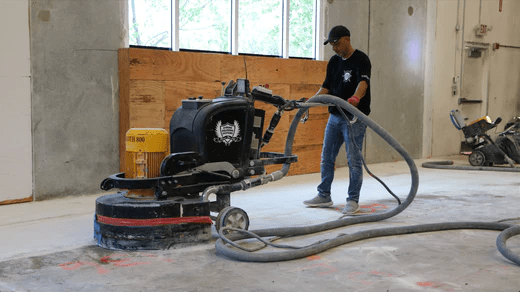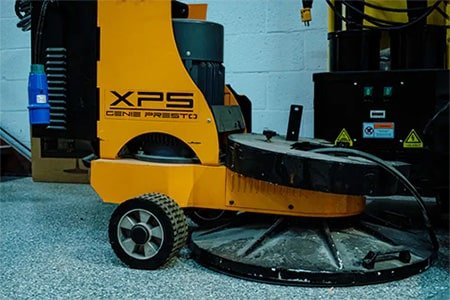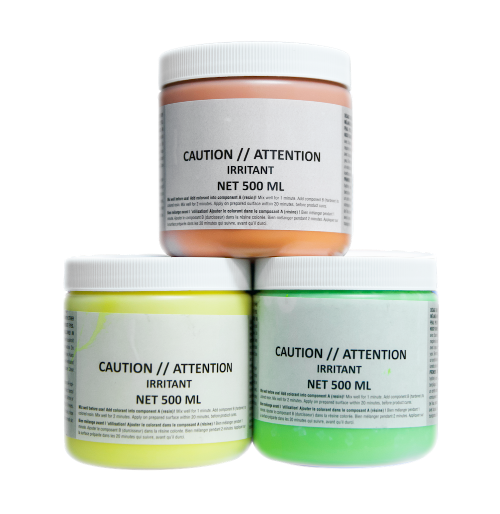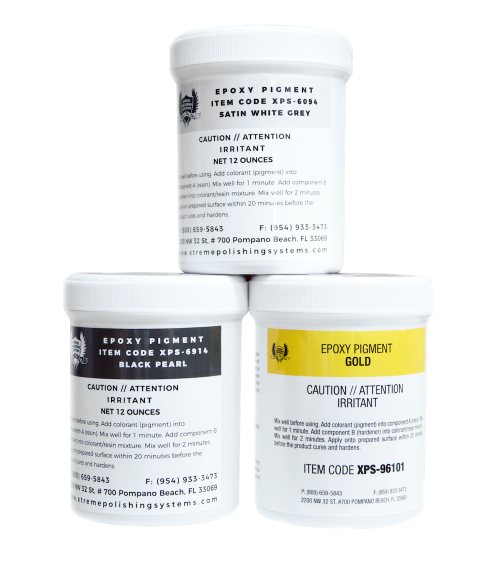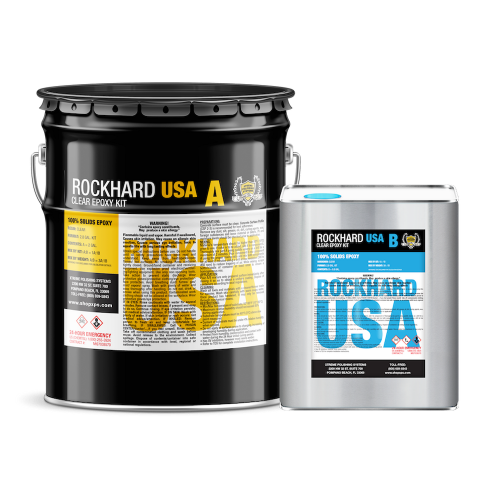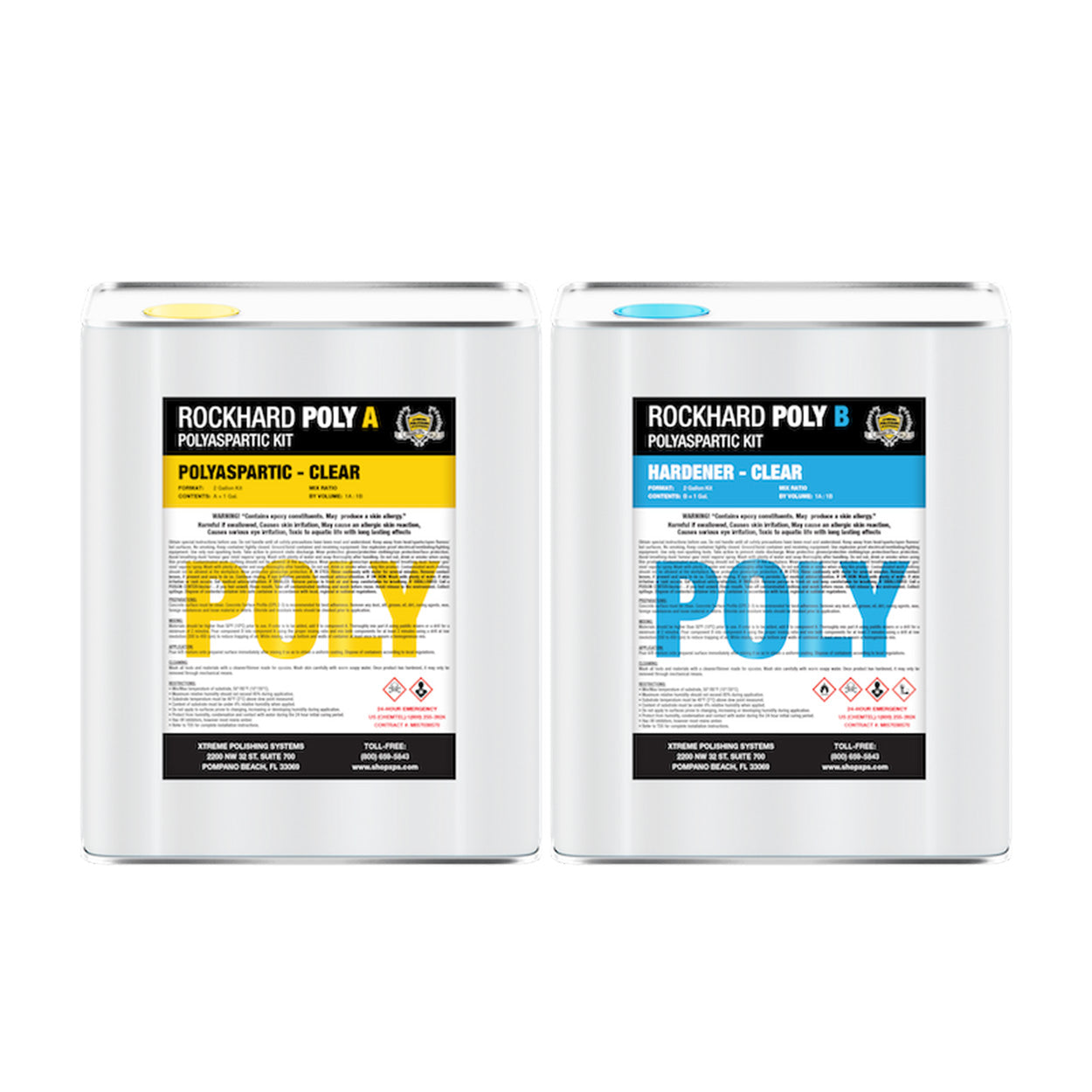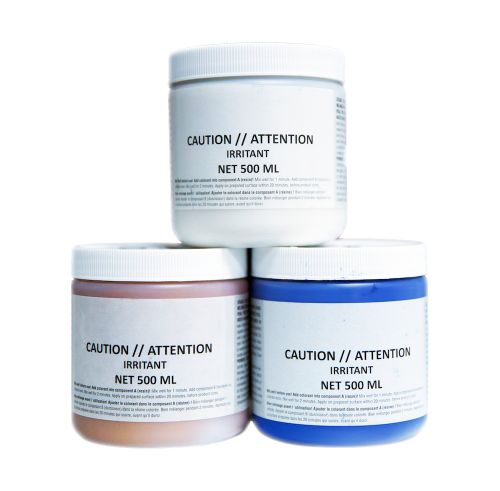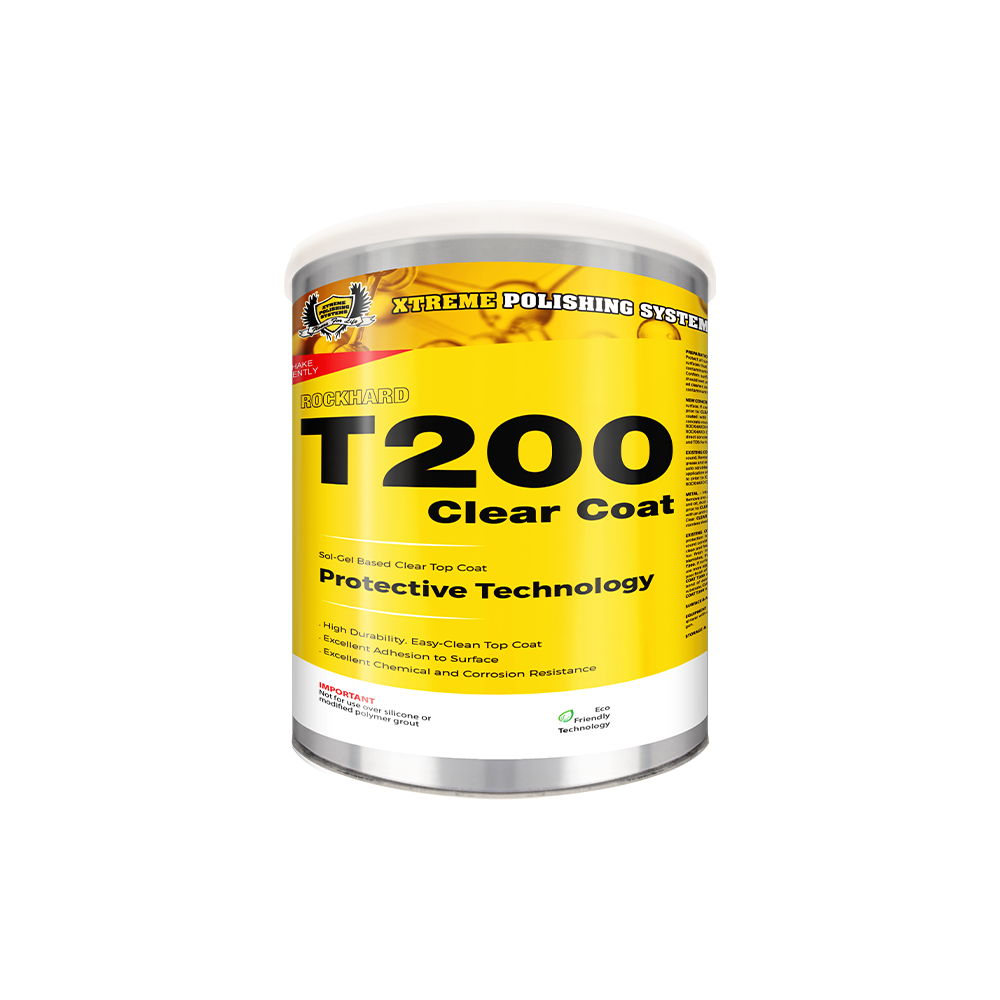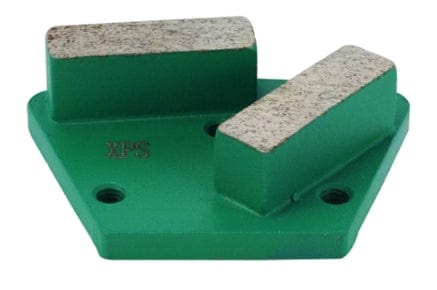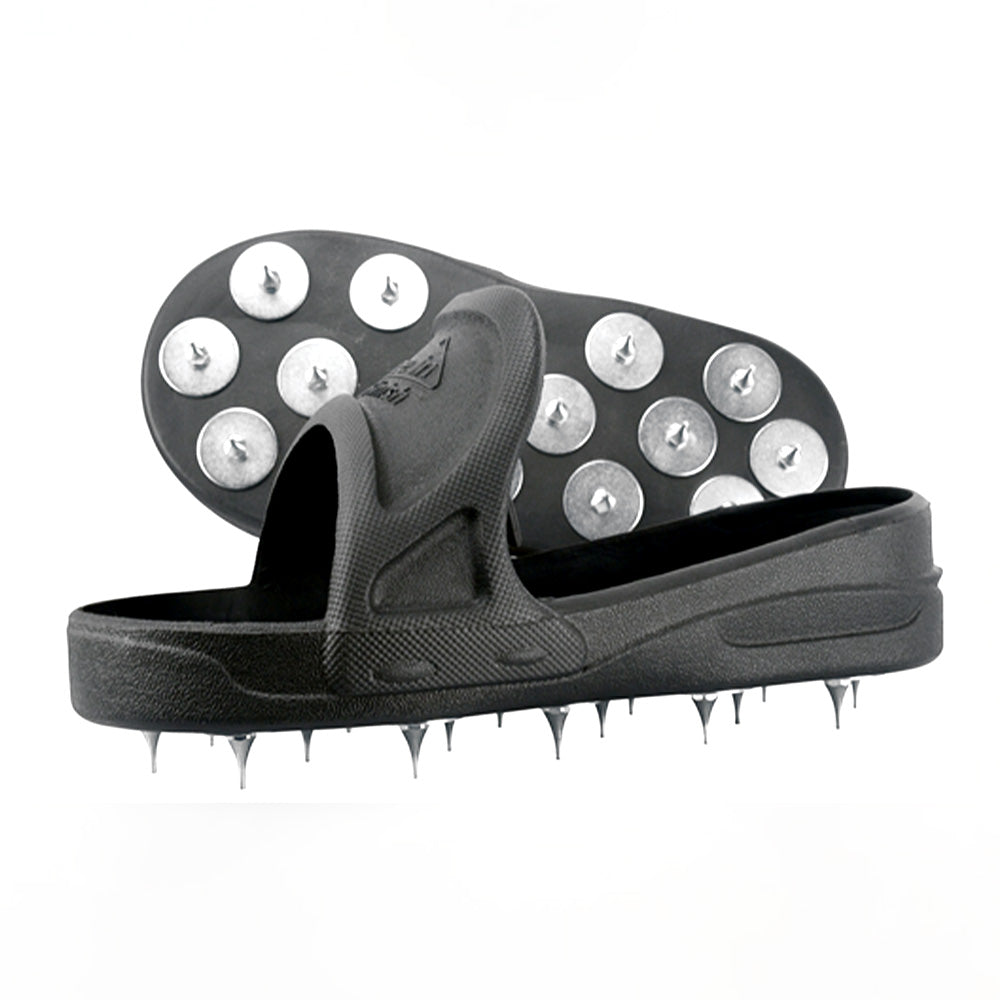Any surface can benefit from epoxy flooring, or resinous flooring since it is highly durable, customizable, sustainable, and decorative. The greatest benefit of epoxy flooring is its durability, which makes it a long-lasting flooring option.
What is Epoxy?

Epoxy coatings are chemically different from regular floor paints, which is one of their primary characteristics. Resinous flooring is based on a two-part epoxy system, which consists of polymer resins and hardeners. Epoxy resin and hardener interact chemically with each other when mixed properly, forming a chemical bond with each other and with the floor itself. A chemical bond creates a tough and durable mixture that binds exceptionally well to its substrate and is resistant to degradation.
An Overview of Epoxy Flooring
In its simplest form, epoxy flooring is a floor covering comprising multiple epoxy layers applied at least two millimeters deep to the flooring surface. The versatility of epoxy flooring makes it an excellent solution for any space. Its long-lasting properties, high resistance to impact, and ability to be customized ensure that it suits any environment. Epoxy floor systems can be used in a variety of applications - whether to create a sleek entryway for a restaurant or to create a durable surface that can withstand heavy industrial use.
Epoxy Flooring Types and Application Areas
 100% Solids Epoxy - Epoxy with 100% solid content does not evaporate water or solvent during curing. There are no harmful organic vapors (VOCs) like those that are generated in urethane applications. In addition to all of these properties, they are aberration-proof, chemical-proof, stain-proof, and all-around the strongest floor coatings.
100% Solids Epoxy - Epoxy with 100% solid content does not evaporate water or solvent during curing. There are no harmful organic vapors (VOCs) like those that are generated in urethane applications. In addition to all of these properties, they are aberration-proof, chemical-proof, stain-proof, and all-around the strongest floor coatings.
Application Areas: Buildings such as manufacturing facilities, industrial warehouse floors, showrooms, hospitals, food facilities, retail stores, and internal pathways for a wide range of uses.

Self-Leveling Epoxy - An epoxy that self-levels is used to create a smooth, durable, and leveled texture on concrete floors, whether new, old, cracked, or damaged. In addition to providing a smooth, seamless appearance, self-leveling epoxy floors come in a variety of colors that are appealing to commercial, industrial, and residential spaces.
Application Areas: Buildings for manufacturing, warehouses, offices, showrooms, retail outlets, commercial garages, athletic facilities, production facilities, food packing plants, and so on.

Quart Epoxy Floors - Epoxy quartz flooring is a combination of high-performance epoxy polymer resin and quartz grains colored in a variety of blends. Decorative spaces requiring slip-resistance and sanitary properties should use this epoxy.
Application Areas: Various facilities such as locker rooms, restrooms, school cafeterias, lobbies, offices, and showrooms as well as residential and commercial garages.

Epoxy Flake Flooring - Epoxy flooring that contains colored flakes creates a vibrant, multi-hued appearance by blending colors. In addition to providing a seamless look, the flakes have subtle grooves to prevent slips and falls. Each epoxy flake floor can be customized to meet the needs of any space. They are available in an unlimited variety of sizes, colors, styles, and textures.
Applications Areas: These include facilities such as supermarkets, hospitals, offices, schools, shopping centers, food preparation areas, toilets/washrooms, garages, and sports facilities, among others.

Metallic Epoxy Flooring - In order to create exotic effects, metallic epoxy floor coatings contain metallic additives mixed into clear epoxy coatings. Lava flow or pearlescent designs are created as the metallic powder moves through the epoxy as it cures. The metallic pigments contain constant movement in their design, which makes the flooring look unique even if the colored pigments are similar.
Application Areas: There are many different types of floors to consider including residential, commercial, retail, salons, restaurants, cafes, hotel lobbies, offices, reception areas, recreation rooms, and more.

Epoxy Terrazzo Flooring - An epoxy terrazzo floor is made of epoxy mixed with aggregates bound with a thin-set resin. An endless variety of colors blend together with shimmering pieces of glass, marble, or granite for a luxurious finish. You can create infinite designs with unlimited colors and intricate patterns available.
Application Areas: New technologies have shaped terrazzo's evolution. With the advent of epoxy resin systems, design, and installation have been transformed and applications have been widened.

Glitter Epoxy Flooring - Industrial glitter is not your standard shelf-bought or craft store glitter. Xtreme Polishing Systems supplies a special polyester glitter that is highly resistant to most common commercial solvents and can be used with most solvents, acrylic, vinyl, and gel systems. Epoxy glitter floors will captivate your guests and clients by achieving remarkable special effects.
Application Areas: There are many different types of floors to consider including residential, commercial, retail, salons, restaurants, cafes, hotel lobbies, casinos, nightclubs, offices, reception areas, recreation rooms, and more.
Now that we are familiar with the major types of epoxy flooring, let us discuss its advantages and disadvantages.
Epoxy Floor Advantages

- Appearance: Epoxy floors have a bright, professional appearance compared to average flooring options. They are enticing just by their appearance. Additionally, the surface is very easy to sweep and maintain due to its smoothness and evenness. In addition to being easy to clean, this type of flooring doesn't attract much dust.
- Inexpensive: With epoxy floors, you can't beat the cost per square meter compared to other types of flooring. Because it can be installed directly over concrete and other types of flooring, it has a lower installation cost. With epoxy flooring, you'll gain immediate and substantial benefits.
- Resilience: There isn't much an epoxy floor can't handle - oil, gasoline, bleach, transmission fluid, cleaners, and more. As a result, they're commonly used in garages and within the automotive industry. Aside from being resistant to chemical spills/cleaners, epoxy floor coatings are also water and heat-resistant. Most chemical spills won't harm the coating, so they are almost impervious to them. They are also very easy to sanitize since they are resistant to bacteria and germs. Thus, epoxy is a great material for hospitals and clinics.
- Decorative: Epoxy works well as a floor decoration material as well. You can choose from a variety of colors to add a flawless, smooth, elegant shine to your flooring. In addition to traditional patterns and designs, the flooring can also be arranged in a personalized fashion. With so many options, plain concrete can be upgraded and the ambiance of a home or office can be improved for an affordable price.
What to Avoid

Knowing the difference between the many epoxy floor coatings is important if you want your floor to turn out right the first time. Coating longevity is affected by those differences. It's imperative to invest in an epoxy floor coating that won't wear out or fail over time.
Existing surface treatments must be removed from the floor of your application area. Professionals may recommend degreasers to remove oil stains. The problem with degreasers is that they leave a residue that hinders adhesion and does not work well when it comes to eliminating oil stains. These products can also be very costly.
Grinding the surface with a floor prep machine is the most effective way to remove oil stains. Despite your best efforts, there are certain floors that you just cannot clean. The reason is that they are heavily stained, which is why you need an oil stain primer. A cheaper and highly effective alternative is to use a muriatic acid product.
A shot-blasting method may also be recommended. It's not recommended to shot blast unless you are a professional who has experience with this type of machine. Unless you know what you're doing, shot blasting leaves lines that can show through even the heaviest epoxy coatings.
There is also the misconception that you can coat right over an existing application, but this is untrue. The majority of epoxy coatings on the market cannot be applied over existing coatings. For this reason, it is highly recommended to use a primer product that will ensure that the epoxy coating bonds to the surface if you decide to choose this method.
Occasionally, you'll see videos showing someone hand grinding the entire floor. It is possible to use hand angle grinders in this application, but they are better suited for small spaces like edges, corners, closets, or narrow hallways that are difficult to reach.
XPS How-to Guides and Videos
Using our expert advice and How-To articles will help you to achieve a successful epoxy coating application, and it will also save you time and money. Xtreme Polishing Systems also provides the video content you crave for all things related to polished concrete and epoxy flooring! Find all your favorites on our YouTube channel, from professional equipment demos and how-to product selection to educational concrete floor guides and step-by-step epoxy coating procedures. Come on board today for exclusive product updates and custom XPS content you won’t find anywhere else.
Conclusion

There are a number of advantages to epoxy floors that make them a very popular option for a wide range of applications. Their affordability and resilience make them a popular choice, and while there may be some issues in certain areas, these can usually be mitigated. A resinous epoxy floor works well in commercial and industrial settings, as well as in residential settings.
If you are looking for an epoxy floor coating system that is innovative, easy-to-apply, and durable, there is no better name than Xtreme Polishing Systems. You can reach a sales representative at 877-958-5732 for assistance with product selection or application. If you are concerned about specific areas on your floor that may be problematic, you may also send pictures. For all your project needs, one of our experts will be happy to help.


